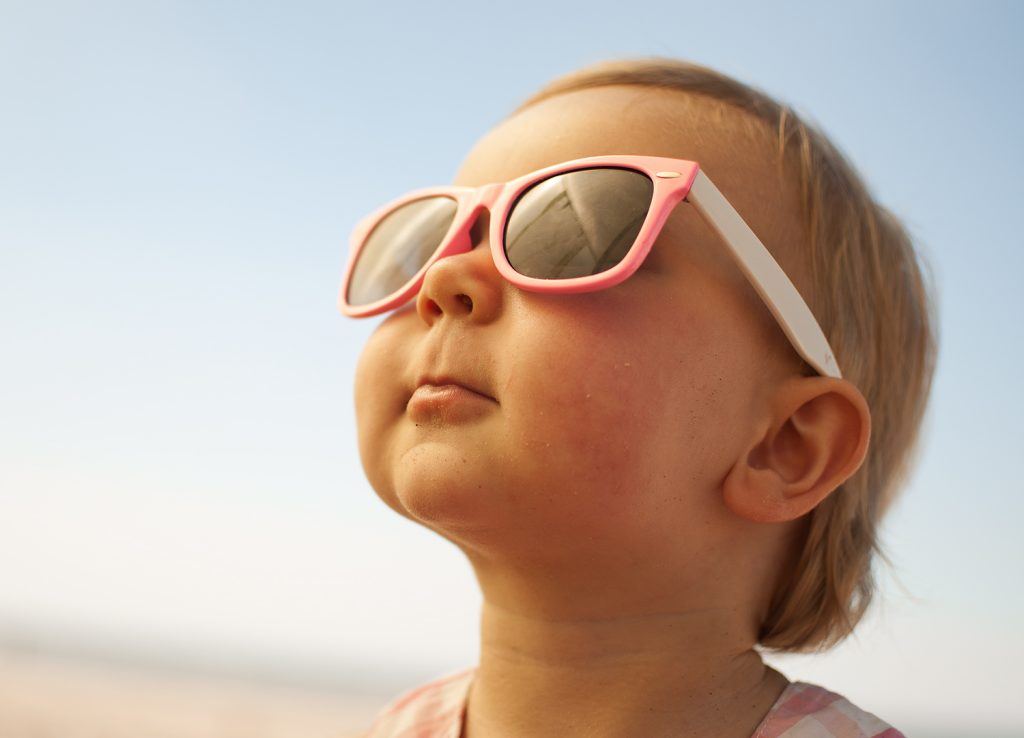One of the easiest ways to set yourself apart from the crowd is with a great pair of sunglasses. In years past it has been pretty easy to follow the latest trends in summer eyewear. But lately, it seems like celebs and fashion icons are all over the map when it comes to accessorizing your face. For ladies, “big” seems to be better. And for guys, classic aviators seem to be still leading the charge.
Regardless of your fashion choices, the nJoy motto has always been, “Make sure you are UV protected!” We’ve hammered out our fair share of blog posts on the topic (see Are Your Shades Shading Your Eyes from UV Light? and All the Cool Kids Are Wearing Sunglasses). So we won’t spend much time discussing this topic anymore, other than to say, “Make sure your lens are 100% UV protected.”
You always want to look for the sticker on the lens before you buy, but the stickers on your sunglasses can be a bit deceiving. Dr. Paul Dougherty, clinical instructor at the Jules Stein Eye Institute in Los Angeles, says it is important to buy sunglasses that block up to 400 nanometers.” This is maximum protection and exactly what you want. In addition, Daugherty cautions against getting pulled into a common misconception. Many sunglasses companies advertise that their shades are “polarized”, and while polarized shades are great for cutting down on glare, they do not provide any additional protection for your eyes.
…while polarized shades are great for cutting down on glare, they do not provide any additional protection for your eyes.
Lastly, when you go in to shop for your latest pair of summer shades, don’t let the price tag lull you into a false sense of security. Just because a pair of sunglasses costs you your mortgage, it does not mean that they offer UV protection. It is just as likely that you can find a cheap pair with 100% UV protection. Furthermore, Dr. Daugherty points out that there is no relationship between lens color and UV protection. So pick out the color you like based on preference. In fact, he cautions that darker lenses that DO NOT have UV protection are far worse for your eyes. When in doubt, it is always a great idea to talk with your doctor before making a purchase. For more tips, check out some of our previous posts!

